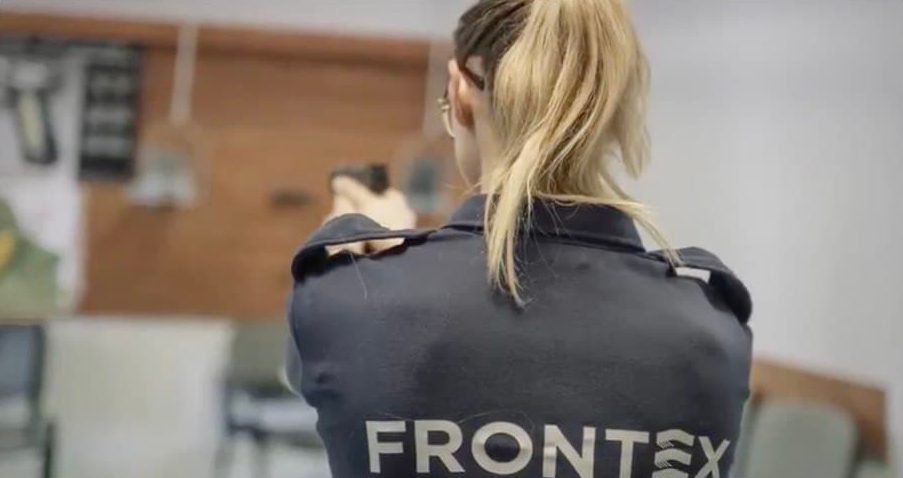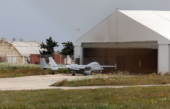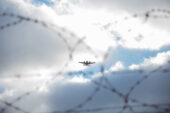For the first time, the EU border agency commands and arms its own police force. Because its director is “fully independent”, this reinforces a glaring control deficit.
Frontex is an agency which was established by the Council of the European Union in 2004 with Regulation 2007/2004 without a parliamentary decision. It was only subsequently given parliamentary legitimacy within the framework of the Treaty of Lisbon by means of several amendments to the Regulation (first with the amending Regulation 1186/2011 on the basis of Article 77 (2) of the Treaty on the Functioning of the European Union).
Frontex’s governing body is the Executive Director, Fabrice Leggeri, and his now three deputies. Leggeri is, according to the current Regulation 2019/1896, “completely independent in the performance of his or her duties” from the other EU institutions as well as from the member states. He may “neither seek nor take instructions from any government or from any other body”. This also applies to the agency as such, which “should be independent as regards operational and technical matters and have legal, administrative and financial autonomy”.
Frontex thus has its own legal personality and executive powers. There is no body that exercises operational supervision over Frontex. A comprehensive right to issue instructions, as ministers have in Germany for their subordinate authorities, therefore does not exist for the border agency. Such an administrative organisation is quite common in other countries, for example in the USA, but also in Great Britain, France, the Netherlands and Spain. There, their establishment is subject to the free decision of the legislator. However, the competences of these independent executive authorities are limited; they cannot carry out coercive police measures and are not armed.
EU Commission not authorised to issue orders
The current multiple proven violations of international conventions in the context of prohibited refoulements (“push backs”) in the Aegean point to a fundamental control deficit of Frontex missions. With the support of the agency, Greece, which is leading the Frontex operation “Poseidon” in the Mediterranean, is breaking numerous provisions of international and European law, including the non-refoulement requirement of the Geneva Convention.
According to the Frontex Regulation, the agency must end its support to the host country of a mission in such cases. Only the Executive Director can cancel a mission, but Leggeri remains inactive on the matter. It is therefore unclear how the obviously illegal actions in the Aegean can be stopped.
As the “Guardian of the Treaties”, the EU Commission is supposed to monitor compliance with European law, but this only concerns its implementation in the member states. According to Regulation (EU) 2019/1896, Frontex must submit regular reports to the Commission and also to the Council. So far, however, these reports do not contain any information on its own misconduct. If this were the case, it would probably remain without consequences, because the Commission also has no authority to issue orders vis-à-vis Frontex.
Biased Management Board
The Frontex Management Board, to which the member states each send one representative and the Commission two, does have a control function. It determines, for example, the agency’s guidelines and establishes working procedures. As the greatest possible consequence, however, the Management Board can only remove the Executive Director. With regard to the “push backs” in the Aegean, the Administrative Board’s own investigation of the incidents proves to be extremely biased, as Greece as a suspected member state and Leggeri as an “expert” also participated.
The EU has not signed the European Convention on Human Rights (ECHR), so Frontex cannot be held accountable before the Human Rights Court. However, the agency is supposed to respect the Charter of Fundamental Rights and international law, as it is now written in the Frontex Regulation. Whether this is done is monitored by a consultation forum involving the EU Fundamental Rights Agency (FRA), the Asylum Support Office (EASO), the United Nations Commissioner for Refugees, the Council of Europe, the International Organisation for Migration (IOM), the Organisation for Security and Co-operation in Europe (OSCE) and some non-governmental organisations. However, the forum remains toothless, it is “consulted” when necessary, its task otherwise consists of writing an annual report on its activities.
The Frontex architecture has subsequently been joined by an Office of the Fundamental Rights Commissioner and its Executive Directors to investigate alleged violations. It is also “consulted” on the operational plans drawn up by the agency. The office also has no authority to issue instructions to Leggeri.
Leggeri commands own border force
With the “Category 1” of the new “Standing Corps”, Frontex now has a contingent of up to 3,000 officers who, for the first time, are armed by the agency itself and commanded by Director Leggeri. Frontex is thus abandoning the principle that officers deployed in operations are seconded from the member states. With the “Standing Corps”, the possibilities of the national governments to influence the agency are also diminishing. They can withdraw their own personnel from joint operations if, for example, it is found to be incompatible with conventions. The decision on the continuation of “Category 1” operations, however, is made solely by Frontex Director Leggeri.
The new intervention force can therefore no longer be operationally controlled by the national parliaments as usual. For example, the German government does not even want to answer questions about the “deployment” of “Category 1” forces. Parliamentary control under EU Community law is also restricted. Written questions from MEPs may only contain a few lines, are only answered after three months and then often evasively.
Frontex’s original purpose was to support member states by coordinating Joint Operations. However, the EU border agency is becoming increasingly powerful. Demanding its abolition is therefore not a left-wing “Cancel Culture”, as German right-wing circles are now portraying it, but a democratic duty.
Image: Frontex “Category 1” training (Frontex).





Leave a Reply